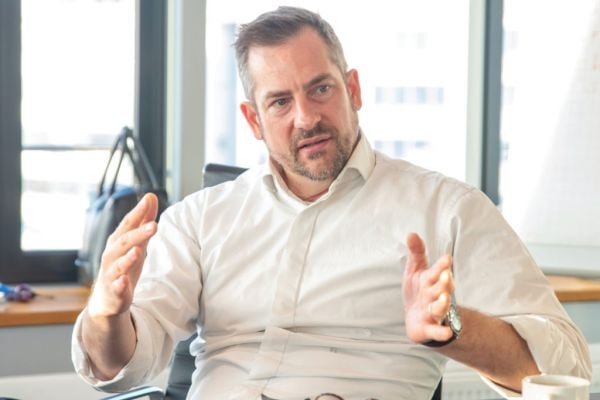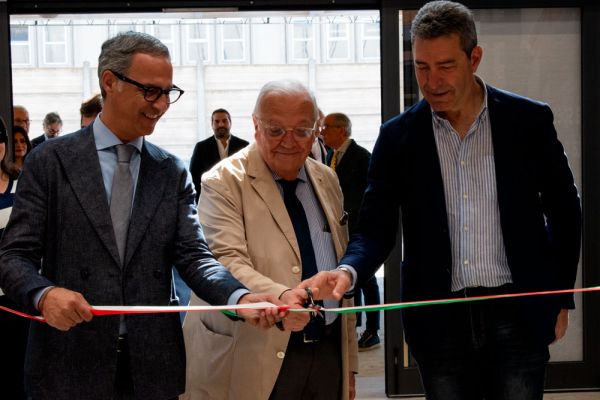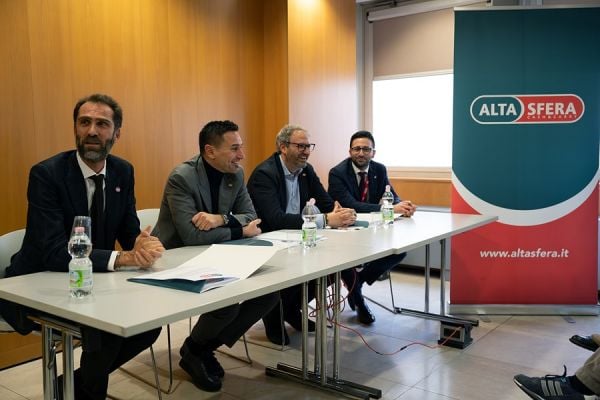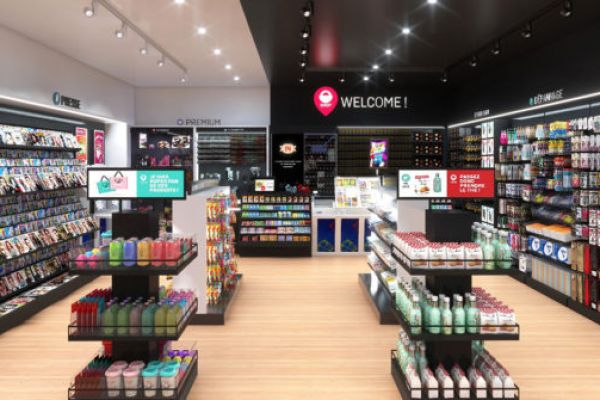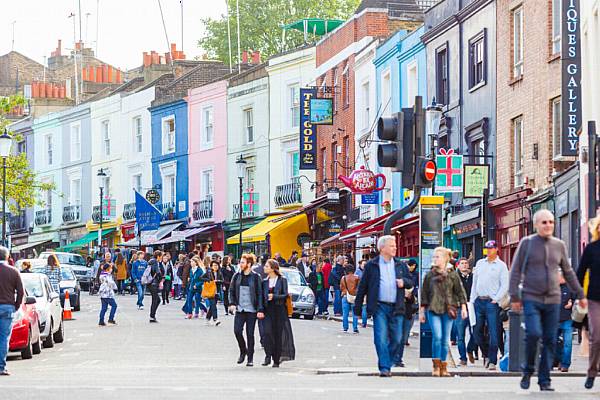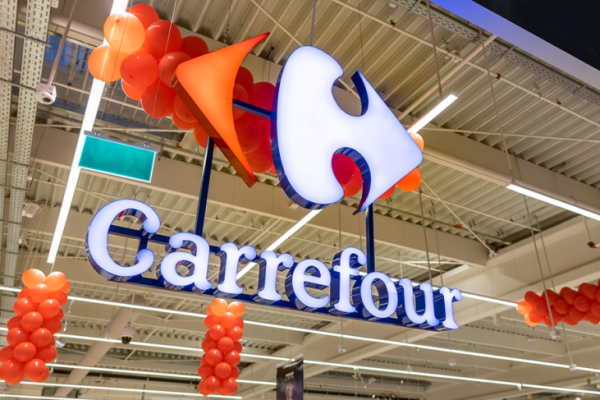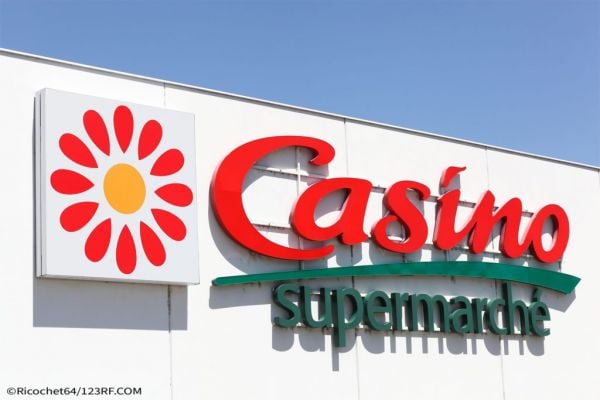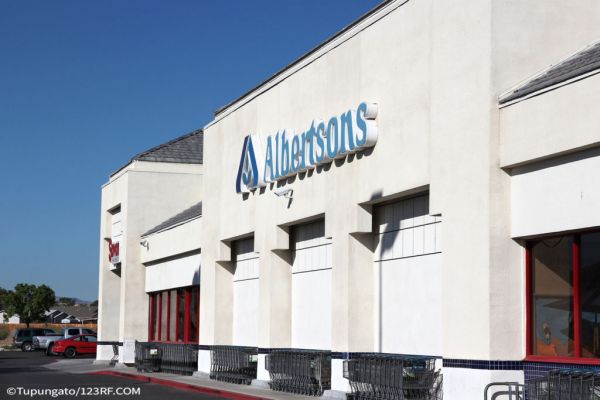Stephen Wynne-Jones travels to Düsseldorf to meet Dr. Steffen Greubel, chief executive of wholesale giant METRO AG. This article first appeared in ESM's March/April 2024 edition.
‘Wholesale. Everywhere. Every time.’
These words are printed in large capital letters at the entrance to METRO AG’s headquarters in Düsseldorf, to remind colleagues, visitors and business partners of the group’s steadfast focus of the past few years: to become the go-to name in wholesale on a global level.
This year marks the 60th anniversary of the opening of the first METRO outlet, in Mülheim an der Ruhr, in 1964 – a store that helped set the template for the cash-and-carry segment globally – but the METRO of today is a vastly different beast to the one developed by entrepreneur Otto Beisheim and the Schmidt-Ruthenbeck family all those decades ago.
For one thing, to describe METRO as a mere cash-and-carry is to do the now global multichannel operation a great disservice.
“If somebody describes our company as METRO Cash & Carry, it drives me crazy,” Dr Steffen Greubel, who has held the role of chief executive at METRO since 2021, tells ESM.
“Even in our organisation, we have still a lot of people that, when they talk about METRO Germany, they say, ‘METRO Cash & Carry Germany.’ I might have to start introducing fines!” he laughs.
The truth is, cash-and-carry is still an important part of the METRO machine, but the business has evolved into so much more than that.
A Multichannel Maestro
Through its ambitious sCore strategy, unveiled in 2022, the group announced plans to become a maestro of multichannel, with stores, food service delivery (FSD) and online complementing each other and interlinking seamlessly.
METRO is aiming to achieve sales of more than €40 billion by the end of the decade – sales in FY22/23 came in at just over €30 billion – and EBITDA of €2 billion (up from €1.174 billion last year). It aims to increase its share of own-brand sales to 35%, while seeking to double its sales force and have ‘strategic customers’ (namely professional businesses) account for 80% of its sales.
In a media call last December, Greubel described METRO as a “restart-up”, and anyone who has tracked the development of the wholesaler in recent years will understand the reference.
The story of METRO over the past decade has been one of divestment. Under previous CEO Olaf Koch, the business rid itself of assets that were dragging it down: Galeria Kaufhof was sold in 2015, MediaMarkt and Saturn spun off in 2017, and the sale of its long-standing hypermarket chain, Real, was completed in 2020.
More recently, other underperforming segments have also been shed, including its businesses in Belgium, Japan, Myanmar and India, as well as in China.
For the first time in several years, therefore, METRO has the opportunity to begin anew, writing a fresh chapter in its history, notwithstanding the geopolitical challenges facing all businesses, of course.
“You can’t overlook the fact that the magnitude of the geopolitical risks and external shocks going on around the world right now is probably at the highest level since COVID,” says Greubel, “but that’s nothing new for a company like METRO. My key message is always, ‘Let’s concentrate on what we can influence’ – the implementation of strategy, the day-to-day business, our relationship with customers.
“We’re not operating in a consolidated industry, so there are always massive growth opportunities.”
The sCore Approach
Glancing at METRO’s most recent first-quarter results (2023/24), those opportunities may not seem glaringly obvious – reported sales rose only marginally (+0.1%), due to negative currency effects, while adjusted EBITDA fell by 13.1% – but, as always, the devil is in the detail.
From a multichannel perspective, METRO is seeing strong momentum – the number of multichannel customers in the HoReCA segment went up by 40% in Q1, compared to the corresponding quarter in the previous year, while FSD sales rose by €239 million.
Solid progress, then – although Greubel has been here before.
Prior to joining METRO, he was a member of the central managing board at Würth Group, a specialist wholesaler for skilled tradesmen and craftsmen, wherein he implemented a strategy not a million miles away from what he is now hoping to achieve with sCore.
“Würth was the clear market leader in a very fragmented industry – there were a lot of opportunities out there,” he says. “In 2014, we implemented a multichannel strategy, which is pretty much the same as we are doing here, with a few small differences.”
Greubel has the mandate to see sCore through to completion – his contract was recently extended by five years, to 2029 – and while he admits that there are “no quick wins” in the wholesale game, he’s encouraged by the progress made in the programme to date.
“There’s no low-hanging fruit, but we are moving forward quite significantly when it comes to the quality of wholesale – the wholesale-iness, so to speak – of the business,” he says.
“That includes things like assortment reduction, taking out complexity, productivity gains, digital share, own-brand share. In a year and a half, we have seen the underlying KPIs making real progress, which is confirmation of the strategy – digital sales have doubled, strategic consumer share is up ten percentage points.
“It’s an old tanker, but we’ve set a new course correction, and we’re really turning the steering wheel. I wouldn’t say it’s a racing yacht yet, but some of the rust is gone, and the ballast.”
Geographical Focus
The focus on consolidating METRO’s geographical footprint has helped alleviate some of the pressure – “We spent 20 years in Japan, and we never earned a dime there,” Greubel says of its former Japanese business – and enabled METRO to focus on upgrading its offer in existing markets.
Of these, Western Europe has seen the most benefit, with France and Spain singled out as the strongest performers in the group’s recent first-quarter update.
“France is our biggest country, by far,” Greubel says of the Western European operation. “It makes more than a billion euro more than Germany each year, which it overtook two or three years ago.”
The group’s German business has had its difficulties in recent years, however – while sales went up by 3.5% in the last financial year, EBITDA declined by €32 million, impacted by cost inflation, investment in price positioning, and stock rationalisation. As the old saying goes, charity begins at home, and Greubel has made it his personal mission to ensure that the German business becomes a benchmark-setter for the rest of the group.
“A lot of things in Germany need to be de-complexified,” he says. “There are still a lot of things that are done like a supermarket, and there are still lots of discretionary shoppers. We will still welcome them, of course, but the offer we are providing needs to be more exclusively wholesale – best price, pallets, availability, things like that.
“You need be strong in your home market – like Mercedes is to Stuttgart. Some of the transformative efforts that we need to do here are high, but the impact is also high. That’s why the German business is reporting directly to me – I need to be close to it.”
Rethinking Wholesale
Visiting two separate METRO outlets during my trip, I can see what Greubel means. The METRO Schlüterstraße store, located beside the group’s headquarters, is an example of the ‘old’ METRO – set across two floors, the assortment on the first floor is awash with SKUs that aren’t essential to its offering, such as toys, clothing and books.
At METRO Neuss, however, located in the south of Düsseldorf, much of the non-essential stock has been removed, freeing up space for the group’s nascent FSD operation.
As Greubel explains, the growth of the group’s METRO Markets business – “an Amazon for gastronomy,” as he puts it – has been a game-changer in enabling METRO to ensure that its store estate is more attuned to its future growth aspirations. Available in Germany, Spain, Italy, Portugal and the Netherlands, the digital marketplace is now home to more than 2,000 partners and lists more than a million products.
In time, METRO is hoping to grow sales through its METRO Markets channel to more than €3 billion – up from €172 million marketplace sales last year.
“It’s like an extended shelf for us,” Greubel says of the METRO Markets proposition. “The availability is great – if we don’t have a particular item, someone else will.”
Coupled with a recent SKU rationalisation process – some 250,000 SKUs have been removed from METRO’s total assortment since the implementation of the sCore strategy – this means that the wholesaler has “no shortage of space at all” to ramp up its delivery ambitions, using its existing assets.
“Some 40% of the surface area here in Germany is taken up by non-food,” says Greubel, “which means you can do a lot of streamlining, freeing up space to organise delivery.”
Another key focus has been on own-brand. With METRO eager to increase own-brand sales to more than 35% by the end of the decade, private-label visibility has been ramped up in its stores and online. On our walk around the Schlüterstraße outlet, Greubel pointed out an own-brand (and more keenly priced) alternative to a well-known spirit brand, highlighting both the cost savings and additional margin opportunity for businesses.
“We’re seeing a good intra-year dynamic in own-brands. In the first quarter, the share was 22%,” he says. “Before we started our strategy, it was sitting at 15% or 16% for about ten years.”
The main growth-driver of own-brand sales is from the group’s MetroChef brand, aimed at professional chefs, which Greubel describes as being “on the level of A-brand, at about 15% to 20% lower price,” while its entry-level Aro brand has also shown strong numbers recently.
Another observation from our in-store stroll is the number of products placed on pallets in high-traffic areas – the manifestation of the group’s ‘Buy More, Pay Less’ or ‘BMPL’ strategy, which has encompassed some 75,000 SKUs since the start of the roll-out, in October 2022, and been a major sales driver for the physical store estate.
As METRO pointed out in December, sales growth for BMPL items is running at 25%, compared to 2% for the remainder of its assortment.
“This is going to be our strategy in cash-and-carry, I’m 100% sure,” says Greubel. “Where we see products on a pallet, we see improved productivity.”
Support Structure
Augmenting METRO’s in-store and online offerings is its network of field sales representatives, to which the business is aiming to add an additional 6,500 personnel by the end of the decade, creating one of the largest sales forces in the wholesale market.
“People buy from other people,” says Greubel. “Our customers, they’re not buying from METRO, they’re buying from Giovanni, they’re buying from Stefan, they’re buying from André. There’s a human interaction there, a connection. That also safeguards our business from external disruption.”
As METRO evolves from being a transaction-based business to a business solutions provider, the role of the sales rep plays an increasingly important role.
The development of the group’s M-Shop system takes the complexity out of METRO’s ordering process, while in 2018, it created DISH, platform to support HoReCa customers with tools to make their businesses more efficient – a service that has recently been supplemented by the roll-out of a new POS solution.
Thus, the typical METRO field sales representative is taking on more of an ambassadorial, educational role, rather than simply taking orders.
“Regardless of the market, from Poland to Portugal, businesses are facing the same challenges,” says Greubel. “If you talk to ten restaurateurs and ask them about their biggest problem, I bet eight out of ten would say it’s the lack of people. The other two might mention exploding costs.
“Therefore, they need to optimise, and DISH is a very cost-efficient way to digitise their processes, from reservations to payments, as well as for managing websites and communication. We see that as a key value opportunity for our customers – we are solving a problem.”
Enabling these additional capabilities has resulted from recent tactical acquisitions undertaken by METRO.
In 2022, it acquired Eijsink, a cloud-based POS payments and booking engine, while other recent acquisitions have included the Günther Group, a supplier of professional kitchen equipment, Johan i Hallen & Bergfalk (JHB), a Nordic supplier of meat, fish and seafood, and METRO Austria’s takeover of AGM’s Abholgroßmärkte.
“We’re not focusing on a ‘growth by M&A’ kind of strategy – the acquisitions we are doing are always covering strategic gaps or speeding up strategic initiatives,” says Greubel.
“Anything we can actually do to make life better for our customers – helping them optimise their digital solutions, helping them optimise their menus, helping them get better value from the products they buy – is giving them better margin and enabling them to compensate for some of the effects in the marketplace at the moment.”
The Next Steps
Achieving the targets enshrined in the sCore strategy won’t be easy, particularly given the nuances of each market in which METRO has a presence – Spain, for example, has already achieved 35% in own-brand sales, while other markets remain in low double digits – but Greubel is eager to leverage the group’s myriad of local successes as a driving force for the group as a whole.
“In terms of transforming the company, there’s not going to be two or three killer measures we can implement that helps to change everything. It’s a combination of dozens, if not hundreds, of individual measures that could be different from country to country,” he says, “but within the METRO system, there is always somebody who is showing great momentum or is close to achieving one of the goals, which shows the potential that we have.”
With the mid-part of the decade looming, inevitably the group’s targets will come under more scrutiny, so, in closing, I ask Greubel to assess METRO’s current performance on a scale of one to ten.
“Internally, I would say six. To you, I say eight!” he laughs. “We can’t be complacent, but I feel we really are moving, that things are getting better. From a wholesale perspective, the company is as good as at any time in its history – certainly in the past two decades.
“Still, when you look at EBITDA, cash flow, you’re not seeing these improvements in every quarter because of external factors. But I’m not looking at quarters. I’m looking at years.”
Or, in the words of another slogan printed in large letters on the wall of METRO HQ: ‘Never Stop. No Fear.’
This article first appeared in ESM's March/April 2024 edition. Main photo by Adele Ansari.
